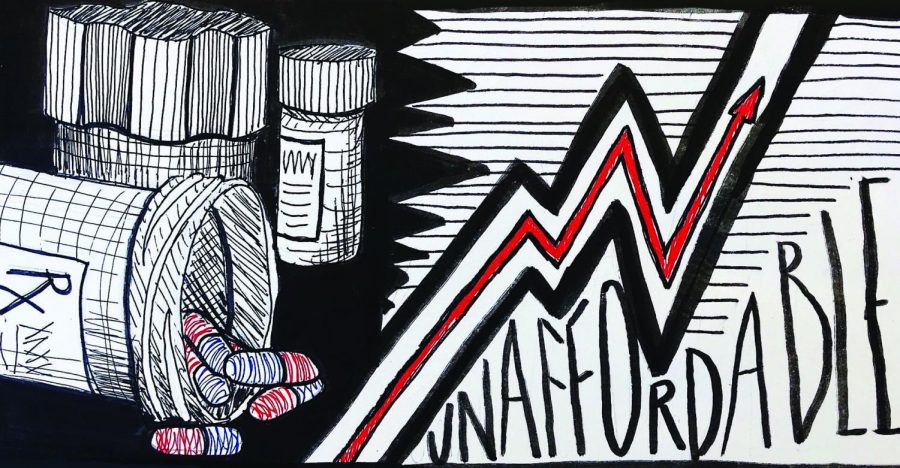Government’s loose grip on prescription drug companies to blame for rising prices
On May 11, 2018, President Trump announced an extensive new effort to lower pharmaceutical drug prices.
During his presidential campaign, his original proposal was to not have the federal government directly negotiate lower drug prices for Medicare, and chose not to allow American consumers to import low-cost medicines from abroad.
But his official plan proposes limiting the growth of Medicare payments for drugs administered in the doctor’s’ office.
According to Forbes.com, Trump’s plan, if enacted, represents a monumental change in pharmaceutical pricing policy, one that will have a significant effect on drug prices in the future.
According to USNews.com, prescription drug prices in America are among the highest in the world, and the prices on prescription drugs rise at a rate faster than any other health care cost.
Medications like the EpiPen, a lifesaving allergy aid, has seen a price hike of 500 percent since 2007.
Researchers from the University of Liverpool found U.S. prices were consistently higher than in other European markets. Elsewhere, U.S. prices were 16 times higher than the average in the lowest-priced country.
Numbers like these lead to the question: why are prescription drugs in the U.S. so expensive?
Other countries, such as Australia and Canada, drive a hard bargain with drug companies in order to ensure that medical treatment remains affordable for all citizens, regardless of their income.
In contrast, the U.S. allows drug companies to pretty much set their own prices, which leads to unaffordable medications.
Prescription drug manufacturers argue that countries that do drive a hard bargain often have a shorter supply of medications, and government approval on new medicine is harder to obtain.
According to Vox.com, lowering drug prices would also lower company profits— which makes pharmaceuticals a less desirable industry for investors. Less investment in drugs would mean less research toward new and innovative medications.
However, Harvard Medical School associate professor of medicine Aaron Kesselheim argues that although American patients have better access to a wide range of products, if the drugs are so expensive that they can’t afford them, that’s functionally the same thing as not even having them on the market.
High drug prices have become a financial crisis for Americans, but rising conversation and public outcry has resulted in some much needed government action.
Trump’s plan won’t fix the issue instantly, but hopefully it will lead to lower prices, which will save money and save lives.

McKenna Cole is a senior and the Managing Editor for “The Tiger Print.” In her free time she enjoys hammocking, drag queens, guacamole, serving the...




